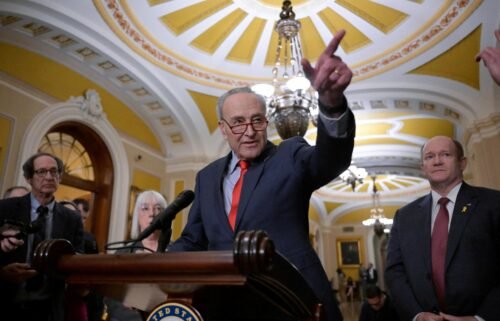Racism, Bernie Sanders and the limits of ‘respect’

It was a study in contrasts.
Over the weekend, at the Second Step Presidential Justice Forum hosted at the historically black Benedict College in Columbia, South Carolina, a black student asked Bernie Sanders how he’d advise him if he were his son and stopped by the police.
“I would do my best to identify who that police officer is — in a polite way ask him or her for their name. I would respect what they are doing so that you don’t get shot in the back of the head,” the Vermont senator said, also noting the significance of police accountability.
When asked a similar question by a young black woman, former Vice President Joe Biden didn’t miss a beat: “If you were my daughter, you would be a Caucasian girl and you wouldn’t be pulled over. … What I’d tell you is: That’s what’s wrong. That is what’s wrong. There is institutional racism that still exists.”
And Sen. Elizabeth Warren of Massachusetts began her response by pointing out, “I had to have a lot of talks with my kids, but I never had to have one about what to do if you get pulled over by the police because the risks are greater for you because of the color of your skin.”
The 2020 Democratic presidential hopefuls’ answers distill the kinds of bleak, though important, conversations black parents have been having with their black children for generations. But one thing that makes Sanders’ comment stand out is the word “respect.”
For one, it’s semantically slippery, especially at a political moment when the man occupying the White House has weaponized it against black Americans — has used it to tap into the tradition of pathologizing them and their perceived bad behavior.
Think of how a common — and predictable — criticism of the former San Francisco 49ers quarterback Colin Kaepernick, who in 2016 began publicly protesting police violence, is that his defiance reveals a “lack of respect” for his country.
For another, Sanders’ reply, at least without a meaningful nod to the racial hierarchies that partly govern America, also seems to assume, quietly, that “respect” can act as a shield.
Indeed, in recent years, much of the fury over the racial dimension of police violence has centered precisely on how the actual threat of black Americans tends to matter very little during encounters with law enforcement. That Eric Garner had no weapon didn’t protect him. Neither did the fact that Philando Castile, who was in a parked car, was restrained by a seat belt.
Respect, in other words, isn’t the issue. It’s, well, racism, and the latter is all too easily exploited under the guise of the former.
None of this is to suggest that Sanders isn’t committed to the pursuit of racial justice. His history of civil rights activism and his present-day messaging on race, which is demonstrably better than it was during the 2016 presidential election, make clear where the senator stands.
What’s more, Biden and Warren’s answers seemed to approach the question differently. While they avoided the thick weeds of black respectability politics, Sanders arguably responded as a black parent who, above all, wants his child to return home.
Still, the conversation over the weekend cast a telling light on the candidates’ varying levels of comfort with grappling — deeply, fundamentally and head-on — with America’s unbending legacy of racism. And some appear to be more up to the task than others.




